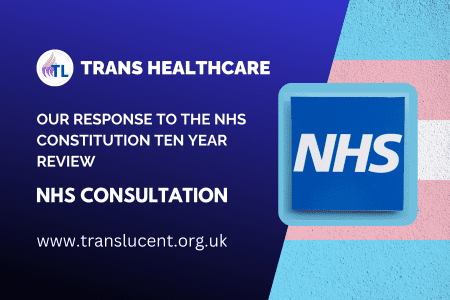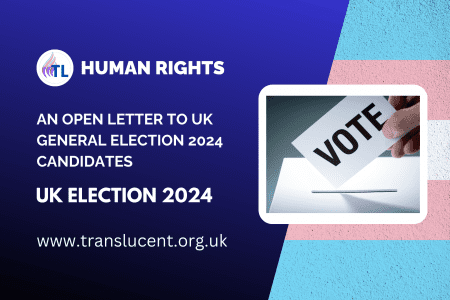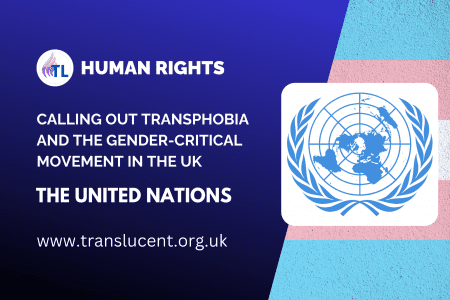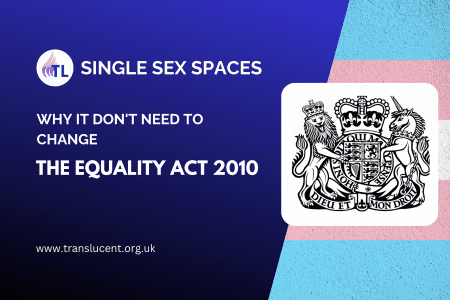A significant contributor to gender dysphoria is the appallingly poor healthcare trans people suffer in the UK. In the past week, I have taken time out of Twitter and worked behind the scenes. One result is a letter which has gone to:
(1) Matt Hancock and his shadow Johnathan Ashworth.
(2) Liz Truss and her shadow Marsha De Cordova.
(3) Copies to all members of the Select Committee for Health & Social Care.
(4) Copies to all members of the Select Committee for Women & Equalities
(5) My MP.
The contents of the letter speak for itself, and I would encourage all trans folk and our allies to copy it, (adapting & changing as you see fit) and then send it to your MP via the “Write to them” website by clicking HERE. Please note a link to the EU report is at the bottom of the page. I simply quoted the information as per page 191. Please remember to add the name of your MP and sign it with your name.
Dear
You may not be aware, but in June of 2020, the European Union issued a 248-page report called “Legal Gender Recognition in the EU” in which they stated that transgender people in the UK experience the worst access to healthcare in Europe. On many occasions, we hear from Government that the UK has the best free healthcare in the world, but in relation to trans folk, we as a community, are left a long way behind. This situation makes trans healthcare both a health and an equalities issue.
This situation has slowly been getting worse for over a decade – with waiting times for referral from a GP to Gender Identity Clinics (GIC’s) anecdotally reported by some in the trans community as exceeding four years (208+ weeks) – making a mockery of the 18-week NHS non-urgent, consultant-led treatment target. Whilst Gender Dysphoria (GD) is no longer considered a mental health issue it is apparent that many people who suffer GD do develop mental health issues and I would maintain that the reason for this is the long waiting times to be treated. Having experienced GD before my transition, the pressures are enormous, and I can completely understand why mental health issues develop. I do not doubt that if waiting times were reduced, self-harm and suicides, (which is prevalent in the trans community) would significantly reduce.
I, therefore, maintain the current trans healthcare system is badly broken and needs very urgent reform, and I also argue that this is not so difficult as some would suggest.
My proposal is that medium and large GP surgeries appoint a GP prepared to undertake a “special interest” in LGBT+ issues. LGBT+ people represent around 9% of the UK population and in relation to trans people; the GP can undertake the issuing of hormones in line with WPATHWPATH World Professional Association for Transgender Health https://www.wpath.org Standards of Care using local psychiatrists and endocrinologists if and as appropriate. GP’s already have this authority but sadly, seldom use it – (Doc POCR ref Gateway 9507 refers). Hormone treatment is often very important to many trans people, making us feel so much better and as a treatment are safe. Whilst GIC’s may well maintain they are specialists in the field of trans medicine, I believe they need to recognise that patients are well versed (thanks to social media) in the procedures they adopt making their work somewhat of a “tick-box” culture that is not fit for purpose. If specialist GP’s took more responsibility for some trans healthcare GIC’s could then offer “hotline” support to those GP’s in need of advice, care ‘in-house’ for more complex cases that GP’s were not comfortable to undertake and deal with surgical patients. The net result of this proposal would be that waiting times could be slashed very quickly and mental health would improve – a benefit both to the individual and society at large.
Ultimately, patient care of most trans people on hormones is not rocket science. There already exists significant endocrinologyendocrinology https://en.wikipedia.org/wiki/Endocrinology Endocrinology (from endocrine + -ology) is a branch of biology and medicine dealing with the endocrine system, its diseases, and its specific secretions known as hormones. It is also concerned with the integration of developmental events proliferation, growth, and differentiation, and the psychological or behavioral activities of metabolism, growth and development, tissue function, sleep, digestion, respiration, excretion, mood, stress, lactation, movement, reproduction, and sensory perception caused by hormones. Specializations include behavioral endocrinology[1][2][3] and comparative endocrinology. information online supplied by a UK specialist considered by many as a world authority. In short healthcare of a trans person ‘on hormones’ principally revolves around regular blood tests (kidney & liver together with oestrogen & testosterone levels) together with occasional bone density checks. Further, the BMA in their 2020 conference passed a motion highlighting the lack of trans healthcare and their support for Self-ID, meaning of course if a patient declares they are trans – they are trans.
I would maintain therefore that it makes complete sense to harness any support from the BMA, divert as much trans healthcare to GP surgeries as possible, thus freeing up GIC’s for more complex cases and resulting in improved healthcare for trans people. Can I ask you therefore in your support of this proposal?
Yours sincerely,
https://journals.sagepub.com/doi/10.1177/0004563215587763











 To provide the best experiences, we use technologies like cookies to store and/or access device information. Consenting to these technologies will allow us to process data such as browsing behaviour or unique IDs on this site. Not consenting or withdrawing consent, may adversely affect certain features and functions.
To provide the best experiences, we use technologies like cookies to store and/or access device information. Consenting to these technologies will allow us to process data such as browsing behaviour or unique IDs on this site. Not consenting or withdrawing consent, may adversely affect certain features and functions.